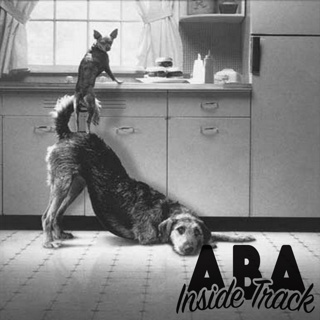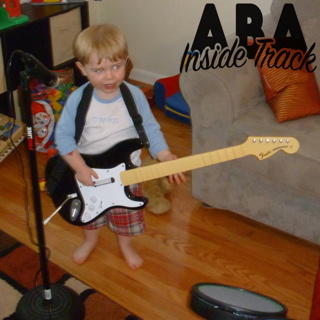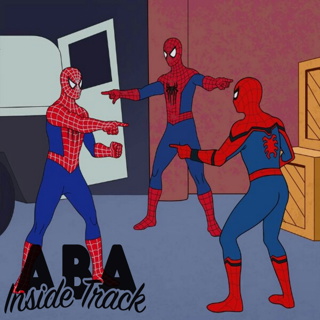
Episode 173 - From Practice to Research
This week we continue our look at what makes practitioners practitioners and researchers researchers…and how we both need each other to create a symphony of best-practices. It's the researchers turn at bat so we discuss studies on how to widen the window of relevant research topics, to reframe methodology into better ways to answer relevant questions, and to put social issues front and center in the laboratory. This episode is available for 1.0 LEARNING CEU. Articles discussed this episode: Baer, D.M. (1977). "Perhaps it would be better not to know everything." Journal of Applied Behavior Analysis, 10, 167-172. doi: 10.1901/jaba.1977.10-167 Odom, S.L., Brantlinger, E., Gersten, R., Horner, R.H., Thompson, B., & Harris, K.R. (2005). Research in special education: Scientific methods and evidence-based practices. Exceptional Children, 71, 137-148. doi: 10.1177/001440290507100201 Fawcett, S.B. Some values guiding community research and action. Journal of Applied Behavior Analysis, 24, 621-636. doi: 10.1901/jaba.1991.24-621 Fassinger, R. & Morrow, S.L. (2013). Toward best practices in quantitative, qualitative, and mixed-method research: A social justice perspective. Journal for Social Action in Counseling and Psychology, 5, 69-83. doi: 10.33043/JSACP.5.2.69-83 Critchfield, T.S. & Reed, D.D. (2017). The fuzzy concept of applied behavior analysis research. The Behavior Analyst, 40, 123-159. doi: 10.1007/s40614-017-0093-x If you're interested in ordering CEs for listening to this episode, click here to go to the store page. You'll need to enter your name, BCBA #, and the two episode secret code words to complete the purchase. Email us at abainsidetrack@gmail.com for further assistance.
21 Heinä 20211h 29min

Episode 172 - From Research to Practice
As a show about reading research to improve practice, you'd think we'd spent more time reviewing research on WHY practitioners should review research regularly. Well, just in case we haven't made it clear in the past five years, we're exploring both sides of the research/practitioner coin in these next two episodes. This week: how can practitioners think of themselves as researchers in their work and improve their evidence-based practices in the process. This episode is available for 1.0 LEARNING CEU. Articles discussed this episode: Kazdin, A.E. (2008). Evidence-based treatment and practice: New opportunities to bridge clinical research and practice, enhance the knowledge base, and improve patient care. American Psychologist, 63, 146-159. doi: 10.1037/0003-066X.63.3.146 Slocum, T.A., Detrich, R., Wilczynski, S.M., Spencer, T.D., Lewis, T., & Wolfe, K. (2014). The evicence-based practice of applied behavior analysis. The Behavior Analyst, 37, 41-56. doi: 10.1007/s40614-014-0005-2 Valentino, A.L. & Juanico, J.F. (2020). Overcoming barriers to applied research: A guide for practitioners. Behavior Analysis in Practice, 13, 894-904. doi: 10.1007/s40617-020-00479-y Green, G. Training practitioners to evaluate evidence about interventions. European Journal of Behavior Analysis, 11, 223-228. doi: 10.1080/15021149.2010.11434346 If you're interested in ordering CEs for listening to this episode, click here to go to the store page. You'll need to enter your name, BCBA #, and the two episode secret code words to complete the purchase. Email us at abainsidetrack@gmail.com for further assistance.
14 Heinä 20211h 23min

July 2021 Preview
A quick monthly update from our cabin in the mountains while we enjoy some summer R+R. We were inspired by the crisp, mountain air and solitude to do some reflection. What does it mean to be a practitioner? A researcher? And how can we use recent discussions of police brutality to check our own treatment of clients? We even came upon a hiking Dr. Cody Morris to join us. So, find your own zen place of reflection for some research-discussion goodness. Articles for July 2021 From Research to Practice Kazdin, A.E. (2008). Evidence-based treatment and practice: New opportunities to bridge clinical research and practice, enhance the knowledge base, and improve patient care. American Psychologist, 63, 146-159. doi: 10.1037/0003-066X.63.3.146 Slocum, T.A., Detrich, R., Wilczynski, S.M., Spencer, T.D., Lewis, T., & Wolfe, K. (2014). The evicence-based practice of applied behavior analysis. The Behavior Analyst, 37, 41-56. doi: 10.1007/s40614-014-0005-2 Valentino, A.L. & Juanico, J.F. (2020). Overcoming barriers to applied research: A guide for practitioners. Behavior Analysis in Practice, 13, 894-904. doi: 10.1007/s40617-020-00479-y Green, G. Training practitioners to evaluate evidence about interventions. European Journal of Behavior Analysis, 11, 223-228. doi: 10.1080/15021149.2010.11434346 From Practice to Research Baer, D.M. (1977). "Perhaps it would be better not to know everything." Journal of Applied Behavior Analysis, 10, 167-172. doi: 10.1901/jaba.1977.10-167 Odom, S.L., Brantlinger, E., Gersten, R., Horner, R.H., Thompson, B., & Harris, K.R. (2005). Research in special education: Scientific methods and evidence-based practices. Exceptional Children, 71, 137-148. doi: 10.1177/001440290507100201 Fawcett, S.B. Some values guiding community research and action. Journal of Applied Behavior Analysis, 24, 621-636. doi: 10.1901/jaba.1991.24-621 Fassinger, R. & Morrow, S.L. (2013). Toward best practices in quantitative, qualitative, and mixed-method research: A social justice perspective. Journal for Social Action in Counseling and Psychology, 5, 69-83. doi: 10.33043/JSACP.5.2.69-83 Critchfield, T.S. & Reed, D.D. (2017). The fuzzy concept of applied behavior analysis research. The Behavior Analyst, 40, 123-159. doi: 10.1007/s40614-017-0093-x Police Brutality and Client Mistreatment w/ Dr. Cody Morris Morris, C. & Hollins, N.A. (2021). On the uncanny similarities between police brutality and client mistreatment. Behavior Analysis in Practice. doi: 10.1007/s40617-021-00576-6
7 Heinä 202115min

Episode 171 - Professional Collaboration (SLP Edition) w/ Dr. Erin Michaud
Behavior analysts sure do know everything. I mean, that's why everyone on every multidisciplinary team calls us all the time to solve all the problems. Wait, they don't?!?! Perhaps it's time to eat some humble pie and learn what real collaboration means. Starting off this (hopefully) multi-part series, we chat with BCBA/SLP/Unicorn Dr. Erin Michaud about what it means to be an SLP, best practices for collaborating on speech treatment, and what to buy your SLP for their birthday (well, we tackle two out of three). This episode is available for 1.0 LEARNING CEU. Articles discussed this episode: Donaldson, A.L. & Stahmer, A.C. (2014). Team collaboration: The use of behavior principles for serving students with ASD. Language, Speech, and Hearing Services in Schools, 45, 261-276. doi: 10.1044/2014_LSHSS-14-0038 LaFrance, D.L., Weiss, M.J., Kazemi, E., Gerenser, J., & Dobres, J. (2019). Multidisciplinary teaming: Enhancing collaboration through increase understanding. Behavior Analysis in Practice, 12, 709-726. doi: 10.1007s40617-019-00331-y Brodhead, M.T. (2015). Maintaining professional relationships in an interdisciplinary setting: Strategies for navigating nonbehavioral treatment recommendations for individuals with autism. Behavior Analysis in Practice, 8, 70-78. doi: 10.1007/s40617-015-0042-7 Luiselli, J.K. (2015). In Response: Maintaining professional relationships in an interdisciplinary setting: Strategies for navigating non-behavioral treatment recommendations for individuals with autism. Behavior Analysis in Practice, 8, 79. doi: 10.1007/s40617-015-0043-6 If you're interested in ordering CEs for listening to this episode, click here to go to the store page. You'll need to enter your name, BCBA #, and the two episode secret code words to complete the purchase. Email us at abainsidetrack@gmail.com for further assistance.
30 Kesä 20211h 20min

Episode 170 - Leisure Skills and Hobbies
With summer just around the corner, many of us will have ample time to enjoy our leisure pursuits. But not everyone develops robust and entertaining hobby-finding behavior spontaneously. This week we're reviewing articles on supporting participation of autistic students and students with developmental disabilities in fun activities like computers, photography, and video game playing. Then Rob discusses how much he loves Guitar Hero 2 for an hour. A good time will be had be all! This episode is worth 1.0 LEARNING CEU Articles discussed this episode: Jerome, J., Frantino, E.P., & Sturmey, P. (2007). The effects of errorless learning and backward chaining on the acquisition of internet skills in adults with developmental disabilities. Journal of Applied Behavior Analysis, 40, 185-189. doi: 10.1901/jaba.2007.41-06 Blum-Dimaya, A., Reeve, S.A., Reeve, K.F., & Hoch, H. (2010). Teaching children with autism to play a video game using activity schedules and game-embedded simultaneous video modeling. Education and Treatment of Children, 33, 351-370. doi: 10.1177/1088357615583469 Edrisinha, C., O'Reilly, M.F., Choi, H.Y., Sigafoos, J., & Lancioni, G.E. (2011). "Say cheese": Teaching photography skills to adults with developmental disabilities. Research in Developmental Disabilities, 32, 636-642. doi: 10.1016/j.ridd.2010.12.006 Tullis, C.A. & Seaman-Tullis, R.L. (2019). Incorporating preference assessment into transition planning for people with autism spectrum disorder. Behavior Analysis in Practice, 12, 727-733. doi: 10.1007/s40617-019-00353-6 If you're interested in ordering CEs for listening to this episode, click here to go to the store page. You'll need to enter your name, BCBA #, and the two episode secret code words to complete the purchase. Email us at abainsidetrack@gmail.com for further assistance.
23 Kesä 20211h 30min

Episode 169 (SUPERVISION) - Identifying Staff Reinforcers
Gather round, employees! I've bought you all something so special. You'll want to work twice as hard once you see what it is. Drumroll please. It's tickets to the opera! What's that? You don't care for hours of singing in German? You can't easily get a babysitter for a four-hour trip to the big city much less pay for parking? Well, guess I should have listened to that episode of ABA Inside Track where research on alternatives for managers making guesses as to what will function as a reinforcer for employees was discussed. Maybe they'd have allowed us to avoid this embarrassing and disheartening exchange. So, you cool if I scalp those tickets? This episode is available for 1.0 SUPERVISION CEU. Articles discussed this episode: Cohen-Almeida, D., Graff, R.B., & Ahearn, W.H. (2000). A comparison of verbal and tangible stimulus preference assessments. Journal of Applied Behavior Analysis, 33, 329-334. doi: 10.1901/jaba.2000.33-329 Wilder, D.A., Wilson, P., Ellsworth, C., & Heering, P.W. (2003). A comparison of verbal and tangible stimulus preference assessment methods in adults with schizophrenia. Behavioral Interventions, 18, 191-198. doi: 10.1002/bin.136 Wilder, D.A., Rost, K., & McMahon, M. (2007). The accuracy of managerial prediction of employee preference: A brief report. Journal of Organizational Behavior Management, 27, 1-14. doi: 10.1300/J075v27n02_01 Waldvogel, J.M. & Dixon, M.R. (2008). Exploring the utility of preference assessments in organizational behavior management. Journal of Organizational Behavior Management, 28, 76-87. doi: 10.1080/01608060802006831 Slowiak, J.M. (2014). "How may I help you?" Improving telephone customer service in a medical clinic setting. Journal of Organizational Behavior Management, 34, 39-51. doi: 10.1080/01608061.2013.873382 If you're interested in ordering CEs for listening to this episode, click here to go to the store page. You'll need to enter your name, BCBA #, and the two episode secret code words to complete the purchase. Email us at abainsidetrack@gmail.com for further assistance.
16 Kesä 20211h 8min

Episode 168 - Emergent Relations w/ Dr. Bryan Blair + Dr. Lesley Shawler
We'd all love to ensure our teaching occurs at maximal efficiency, but it can be so hard to take advantage of emergent relations. What if Dr. Brian Blair and Dr. Lesley Shawler had some simple tech tweaks that you could explore to set up your own emergent relations training systems to make teaching efficient without the need for expensive software. Well, we hope you'd say, "I'd definitely listen to a podcast episode all about it," and here it is! This episode is available for 1.0 LEARNING CEU. Articles discussed this episode: Blair, B.J. & Shawler, L.A. (2020). Developing and implementing emergent responding training systems with available and low-cost computer-based learning tools: Some best practices and a tutorial. Behavior Analysis in Practice, 12, 509-520. doi: 10.1007/s40617-019-00405-x Blair, B.J., Shawler, L.A,, Albright, L.K., & Ferman, DM. (2021). An evaluation of the emergence of untrained academic and applied skills after instruction with video vignettes. The Analysis of Verbal Behavior. doi: 10.1007/s40616-020-00140-3 Blair, B.J., Tarbox, J., Albright, L., MacDonald, J.M., Shawler, L.A., Russo, S.R., & Dorsey, M.F. (2019). Using equivalence-based instruction to teach the visual analysis of graphs. Behavioral Interventions, 34, 405-418. doi: 10.1002/bin.1669 Brodsky, J. & Fienup, D.M. (2018). Sidman goes to college: A meta-analysis of equivalence-based instruction in higher education. Perspectives in Behavioral Science, 41, 95-119. doi: 10.1007/s40614-018-0150-0 If you're interested in ordering CEs for listening to this episode, click here to go to the store page. You'll need to enter your name, BCBA #, and the two episode secret code words to complete the purchase. Email us at abainsidetrack@gmail.com for further assistance.
9 Kesä 20211h 23min

June 2021 Preview
After a year cooped inside, are you unsure how to start your summer? What if I told you that there was a podcast all about promoting new leisure skills, identifying reinforcers for adults, collaborating with other professionals, and learning new information as if by magic? Well, at least thematically, that's just what we'll be talking about all June on the show. Plus special guests Drs. Bryan Blair, Lesley Shawler, and Erin Michaud start their summer vacations with us. Toss on your sunglasses and join in! Articles for June 2021 Emergent Relations w/ Dr. Bryan Blair + Dr. Lesley Shawler Blair, B.J. & Shawler, L.A. (2020). Developing and implementing emergent responding training systems with available and low-cost computer-based learning tools: Some best practices and a tutorial. Behavior Analysis in Practice, 12, 509-520. doi: 10.1007/s40617-019-00405-x Blair, B.J., Shawler, L.A,, Albright, L.K., & Ferman, DM. (2021). An evaluation of the emergence of untrained academic and applied skills after instruction with video vignettes. The Analysis of Verbal Behavior. doi: 10.1007/s40616-020-00140-3 Blair, B.J., Tarbox, J., Albright, L., MacDonald, J.M., Shawler, L.A., Russo, S.R., & Dorsey, M.F. (2019). Using equivalence-based instruction to teach the visual analysis of graphs. Behavioral Interventions, 34, 405-418. doi: 10.1002/bin.1669 Brodsky, J. & Fienup, D.M. (2018). Sidman goes to college: A meta-analysis of equivalence-based instruction in higher education. Perspectives in Behavioral Science, 41, 95-119. doi: 10.1007/s40614-018-0150-0 Identifying Staff Reinforcers Cohen-Almeida, D., Graff, R.B., & Ahearn, W.H. (2000). A comparison of verbal and tangible stimulus preference assessments. Journal of Applied Behavior Analysis, 33, 329-334. doi: 10.1901/jaba.2000.33-329 Wilder, D.A., Wilson, P., Ellsworth, C., & Heering, P.W. (2003). A comparison of verbal and tangible stimulus preference assessment methods in adults with schizophrenia. Behavioral Interventions, 18, 191-198. doi: 10.1002/bin.136 Wilder, D.A., Rost, K., & McMahon, M. (2007). The accuracy of managerial prediction of employee preference: A brief report. Journal of Organizational Behavior Management, 27, 1-14. doi: 10.1300/J075v27n02_01 Waldvogel, J.M. & Dixon, M.R. (2008). Exploring the utility of preference assessments in organizational behavior management. Journal of Organizational Behavior Management, 28, 76-87. doi: 10.1080/01608060802006831 Slowiak, J.M. (2014). "How may I help you?" Improving telephone customer service in a medical clinic setting. Journal of Organizational Behavior Management, 34, 39-51. doi: 10.1080/01608061.2013.873382 Collaboration with Other Professionals w/ Dr. Erin Michaud Donaldson, A.L. & Stahmer, A.C. (2014). Team collaboration: The use of behavior principles for serving students with ASD. Language, Speech, and Hearing Services in Schools, 45, 261-276. doi: 10.1044/2014_LSHSS-14-0038 LaFrance, D.L., Weiss, M.J., Kazemi, E., Gerenser, J., & Dobres, J. (2019). Multidisciplinary teaming: Enhancing collaboration through increase understanding. Behavior Analysis in Practice, 12, 709-726. doi: 10.1007s40617-019-00331-y Brodhead, M.T. (2015). Maintaining professional relationships in an interdisciplinary setting: Strategies for navigating nonbehavioral treatment recommendations for individuals with autism. Behavior Analysis in Practice, 8, 70-78. doi: 10.1007/s40617-015-0042-7 Luiselli, J.K. (2015). In Response: Maintaining professional relationships in an interdisciplinary setting: Strategies for navigating non-behavioral treatment recommendations for individuals with autism. Behavior Analysis in Practice, 8, 79. doi: 10.1007/s40617-015-0043-6 Leisure Skills and Hobbies Jerome, J., Frantino, E.P., & Sturmey, P. (2007). The effects of errorless learning and backward chaining on the acquisition of internet skills in adults with developmental disabilities. Journal of Applied Behavior Analysis, 40, 185-189. doi: 10.1901/jaba.2007.41-06 Blum-Dimaya, A., Reeve, S.A., Reeve, K.F., & Hoch, H. (2010). Teaching children with autism to play a video game using activity schedules and game-embedded simultaneous video modeling. Education and Treatment of Children, 33, 351-370. doi: 10.1177/1088357615583469 Edrisinha, C., O'Reilly, M.F., Choi, H.Y., Sigafoos, J., & Lancioni, G.E. (2011). "Say cheese": Teaching photography skills to adults with developmental disabilities. Research in Developmental Disabilities, 32, 636-642. doi: 10.1016/j.ridd.2010.12.006 Tullis, C.A. & Seaman-Tullis, R.L. (2019). Incorporating preference assessment into transition planning for people with autism spectrum disorder. Behavior Analysis in Practice, 12, 727-733. doi: 10.1007/s40617-019-00353-6
2 Kesä 202126min






















